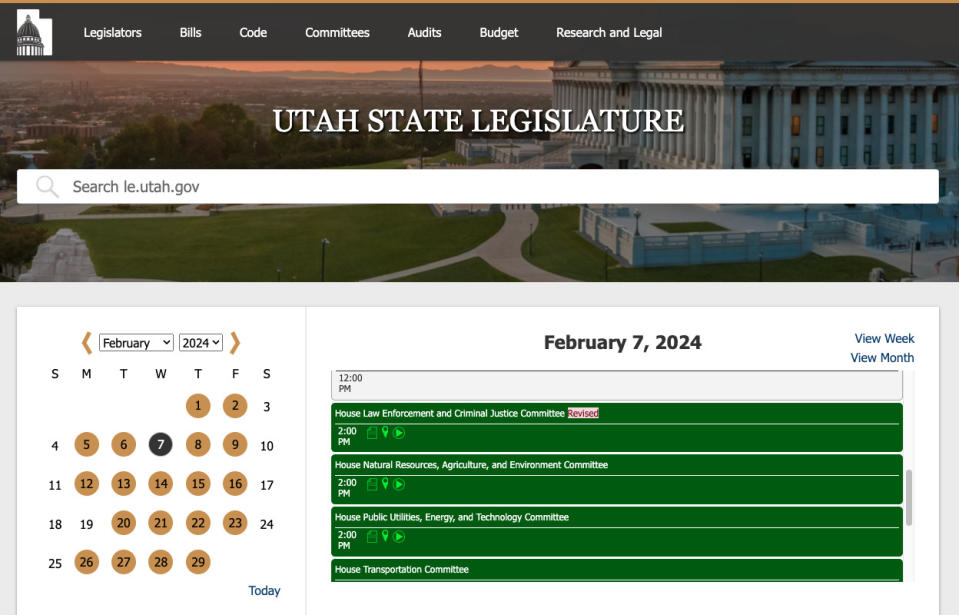What do Taylor Swift and AI have to do with the Utah legislature?

- Oops!Something went wrong.Please try again later.
Artificial intelligence was used to create fake, sexually explicit images of Taylor Swift late last month. One image shared by a user on X was viewed over 47 million times before the account was suspended. Swift is reportedly furious and considering legal action. It’s one of the dark sides of AI people have been worried about.
What does that have to do with the Utah Legislature? Well, as far as I know, there are no surprise visits for Swift to testify in committee. But, there are a couple of bills trying to tackle this problem of AI-generated explicit images. One is SB66 being run by Sen. Karen Kwan, D-Murray, and one is HB148, sponsored by Rep. Ariel Defay, R-Kaysville.
Kwan’s bill would add one word to current law prohibiting “counterfeit intimate images,” and that word is “generate.” Defay’s bill would specifically prohibit the use of AI to generate child pornography.
If you’re interested in following those bills (or any of the hundreds of others), keep reading.
Every year, Utah’s part-time Legislature meets for 45 consecutive calendar days (taking weekends and Presidents Day off). This year, the session began on Jan. 16 and will adjourn sine die on March 1 at 11:59 p.m. We hit the halfway point this week.
At the beginning of this week, the Legislature had passed 58 bills. By the end of the session, that number will be nearly 10 times that many, somewhere closer to 600 bills. There are currently 762 bills named, numbered and drafted, with even more in process. That’s a lot of bills.
How to follow bills
Following the progress of specific bills may seem daunting, but the good news is, there are ways to do it.
To start, go to the award-winning Utah legislative website at le.utah.gov. On the home page, you will see a monthly calendar on the left and a daily calendar on the right. The daily calendar shows you floor time, when senators and representatives will all be on the Senate or House floor, respectively, to debate bills as an entire body.

It also shows you committee meeting times, with a clickable agenda, so that you can see each day’s bills being discussed in committee. You can watch or listen to floor proceedings, and you can watch, listen and testify in committee hearings, either in-person or online.
For specific bills, you can sign up for the Utah Legislature’s bill tracker and choose to get updates whenever the bill status is updated, or you simply search for the bill number. Let’s take SB66 Criminal Offense Amendments, by Kwan.
We could call it the Taylor Swift bill.
Related
If you signed up to track this bill at the beginning of the session, you would have received notifications that the bill was assigned to the Senate Rules Committee, and then assigned to the Senate Judiciary, Law Enforcement and Criminal Justice Committee, where it passed unanimously. Then, the bill went to the Senate floor, where it passed unanimously on both the second and the third reading, The bill was then sent to the House, where it was read. It then went to the Rules Committee and was assigned to the House Economic Development and Workforce Services Committee, where it will be heard on Thursday afternoon. If the bill passes the House committee as expected, it will go to the House floor, where Rep. Stephanie Gricius, R-Salt Lake City, will present it to the House.
If you missed any of the hearings or debate, you can click on the tab at the top of the bill page that says “Hearings/Debate” and listen. All debates and hearings are public and recorded.
Holly Richardson is the editor of Utah Policy.

